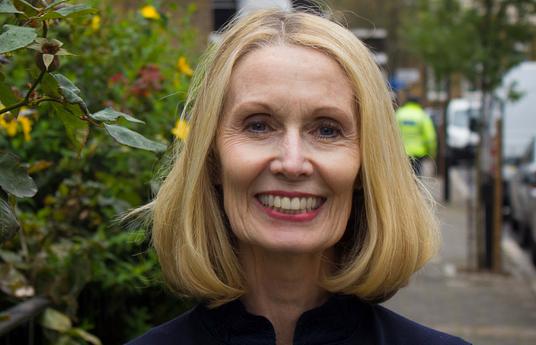Gone are the days of only the elite being able to access information, now it takes roughly a second to google anything you want to know. You can download an app to learn a language, academic lectures can be found on youtube, social media allows for discussions on various topics to take place and for information to be shared. So in an age when you’re able to teach yourself anything, what is the point of a teacher?
Traditionally the role of the teacher was to be an expert in their field and to impart their knowledge to children. This is an industrial vision for the teacher and is something that, along with many other parts of education, isn’t changing fast enough to keep up with societal developments. We no longer necessarily need experts in particular subject areas in our schools when children can google answers for themselves. As Sheizaf Rafaeli, director of Internet Research in Israel, commented, ‘Every month that goes by I'm expected to know less because Google knows more than me’.
Of course teachers’ experience and knowledge can be helpful to children, but it shouldn’t necessarily be their primary role. There are other ways they can provide children with direction to help them go on to lead happy, healthy and productive lives. So what should this look like? Allan Kjaer Andersen, Principal of Ørestad Gymnasium in Copenhagen, thinks that what’s important for a teacher to do is ‘talk less and let the students work more. The teacher has to organise processes that encourage that to happen.’
Teachers as Facilitators
In an attempt to shift away from the old-style of teaching, where the teacher is the main spokesperson with the students being passive listeners, there is a shift towards teachers becoming facilitators. The opposite to leading the discussion and being the loudest voice in the room, a facilitator allows and enables a discussion on a topic to happen whilst remaining neutral themselves. This is important so that children can lead their own learning, and allows the students to deeply engage with what they are studying.
However, being a facilitator is not an easy role to adopt, considering the pressures that teachers face to get certain levels of performances out of their students. We spoke to Jennifer Camulli, Head of Coordinated Student Services at the International School of Macao, about this issue. ‘The role of the teacher is to facilitate opportunities for success, which is easier said than done. Teachers are under pressure to meet curriculum demands and prepare students for examinations that don’t cater to the individual needs of students.’
The expectations placed upon teachers by policy makers and educational systems that demand results from them, usually in the form of the grades their pupils get via examinations, can damage a teacher’s ability to hand over the lesson to the pupils. It can seem a daunting experience, when in the back of your mind you are aware of the curriculum you need to get across and the grades you need your students to attain, in order for others to think you are doing your job properly.
Even so, doesn’t this do teachers a slight disservice? Teachers have their own skills and expertise to share. By going too much the other way, where teachers are merely in the background, we could be losing out on a valuable resource which is right in front of us.
One of the main issues is training teachers how to teach in a world which is different from the days of their own schooling. We need to help teachers embrace digitization and adapt their position and their role in the classroom. Valerie Hannon, Board Director of Innovation Unit, an independent social enterprise that develops innovative, low-cost solutions to social challenges, questions just this.
‘I think this is one of the really big questions as to how we change initial teacher education and continuing professional development to enable teachers to adapt to a fundamentally different role in light of the explosion of knowledge that we have seen occur through the digital revolution in the last ten years. (...) the question for teachers really is: how do they start to reshape a role which both exploits their subject knowledge, but at the same time makes the very best use of what should be their key skill, which is in designing great learning experiences?’
Co-Teaching and Digitization

In Finland, we are following a project which helps teachers to realise the impact digitalization will have on their teaching. Co-Teaching In The Age of Digitalization is an experiment which teams up four teachers who will co-educate and design all of their lessons together on a digital platform. The aim of the project is to create a community and culture of digital co-teaching, to improve the sharing and planning of ideas for teachers which will save resources whilst additionally promoting student-centred learning.
With the pressure placed on teachers to attain and maintain certain results, long hours, and often very little financial benefit, we need to start providing a support network for our teachers. Co-educating is one option available to us which is relatively easy to implement and can simultaneously help teachers adjust to the demands of digitization.
The Fundamentals of Being a Teacher
Even though the fundamentals on how to teach are shifting and changing with the developments of technology and media, one thing never changes. The impact a teacher can have on a child’s life.
‘The role of teachers is of facilitating, inspiring, storytelling, empowering and really seeing the classroom as a team of young individuals, as well as orchestrating the energy in a group. The role of the teacher is extremely important.’ Bas Verhart, co-founder of THNK, told us in a recent interview. In this light, the role of the teacher does not diminish with the rise of technology, if anything the impact of human interaction becomes even more keenly needed.
The teacher is needed to assist and inspire their students, helping them to come to terms with what they are passionate about, discover what goals they want to achieve and to help them realise those aspirations. It also means that the teacher should neither be a passive participant, only facilitating the lessons, nor leading and dominating the conversation. The teacher is an enabler, and ultimately that will look different depending on each student’s personal needs.
No matter what technologies have been developed, human contact and encouragement can go a long way into helping to shape a person’s future. When we interviewed educational experts about their visions for the future of education and asked them about their personal memories, an astounding amount of them mentioned a particular teacher who had had a profound effect on their life. So surely when preparing teachers for the next generation of school children it is this that we should focus on, as Bas Verhart continued to say, ‘You see a lot of research on how when people talk about the most important people in their life they mention this one teacher who was very instrumental for their growth, who respected them as an individual. We need to have those teachers, and so we need to teach teachers how to become that.’
The problem with keeping tabs on our teachers is you don’t necessarily see the effect they have on a student’s life straight away, they can have a profound effect which can only be noticed once several decades have passed, when a person looks back on their life and sees how they’ve got to where they are now. This is precisely something that Matt Esterman told us in a recent interview, ‘You can’t measure the influence of great teachers, and you shouldn’t necessarily measure it. It might come out thirty, forty or fifty years later.’
Teachers can help shape a person and their potential dreams and careers. Teaching can be so much more than just leading or facilitating. As is usually the way in life, a mixture of lots of different elements seems to be the best course, but over it all teaching is a selfless profession where the main focus is always on the student and their personal development. No amount of technology changes that, and it is the key thing to remember. This is best summed up by Pak Tee Ng, Singapore’s leading educationalist, ‘The teacher has always been the person who plants trees so that other people can sit under them.’
---
For more articles on teaching, read the following:
⅓ of Teachers Quit Within Five Years of Qualifying
Think Your Retirement Plan is Bad? Talk to a Teacher
Justine Greening Pushes For Teacher Pay Rises to Remain Capped






